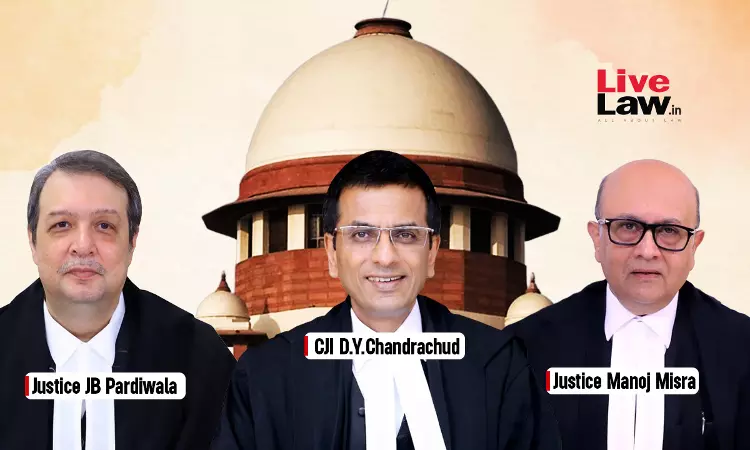- Home
- /
- Top Stories
- /
- No Government Servant Can Claim...
No Government Servant Can Claim Promotion As Their Right : Supreme Court
Anmol Kaur Bawa
1 Jun 2024 10:25 AM IST
Recently, the Supreme Court observed that government employees cannot demand promotion as a matter of right and that the Court's intervention in promotion policies should only be limited when there is a violation of the equality principle under Article 16 of the Constitution. On May 17, the Court upheld the recommendations made by the High Court of Gujarat in 2023 for the promotion of...
Tags
Seniority Cum MeritMerit cum SeniorityDistrict JudiciaryJudicial PromotionsJustice JB PardiwalaJustice Manoj MisraJudicial Officers Promotion To District JudiciaryCJI ChandrachudRavikumar Dhansukhlal Maheta & Anr. v. High Court of Gujarat & Ors.Government EmployeesPromotion policyArticle 16Indian ConstitutionSupremeCourt
Next Story



